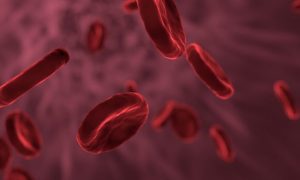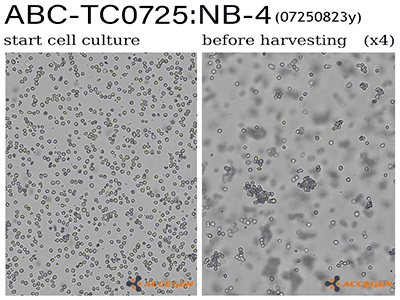Featured Products
Explore Products
- In-Stock Tumor Cell Lines
- Human Orbital Fibroblasts
- Human Microglia
- Human Pulmonary Alveolar Epithelial Cells
- Human Colonic Fibroblasts
- Human Type II Alveolar Epithelial Cells
- Human Valvular Interstitial Cells
- Human Thyroid Epithelial Cells
- C57BL/6 Mouse Dermal Fibroblasts
- Human Alveolar Macrophages
- Human Dermal Fibroblasts, Adult
- Human Lung Fibroblasts, Adult
- Human Retinal Muller Cells
- Human Articular Chondrocytes
- Human Retinal Pigment Epithelial Cells
- Human Pancreatic Islets of Langerhans Cells
- Human Kidney Podocyte Cells
- Human Renal Proximal Tubule Cells



 However, they also express certain T-cell markers like CD2 and CD4, as well as a monocytic marker, CD9. The NB4 cells display a myeloblastic appearance that does not include the characteristic granules observed in acute promyelocytic leukemia. When exposed to retinoic acid, NB4 cells undergo rapid morphological and functional maturation.
However, they also express certain T-cell markers like CD2 and CD4, as well as a monocytic marker, CD9. The NB4 cells display a myeloblastic appearance that does not include the characteristic granules observed in acute promyelocytic leukemia. When exposed to retinoic acid, NB4 cells undergo rapid morphological and functional maturation.
